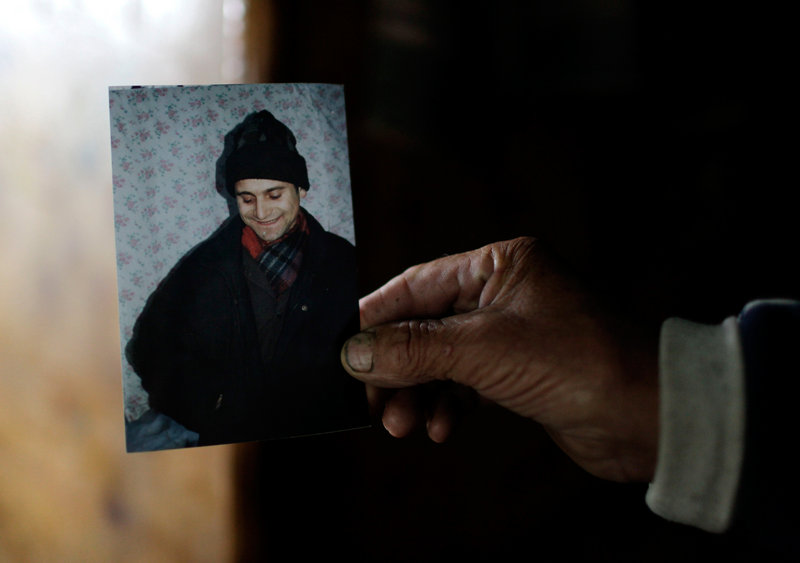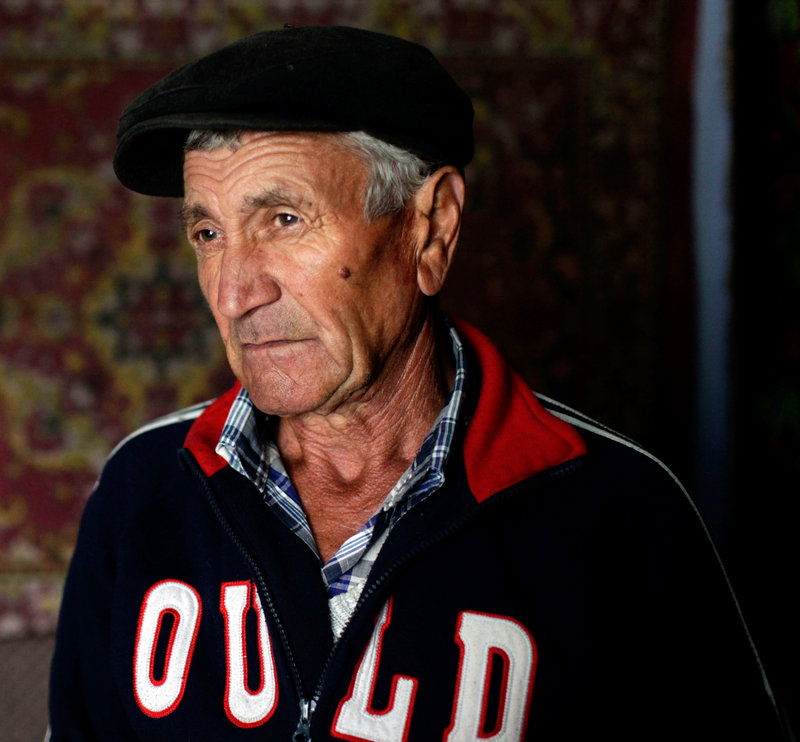BABRUJSK, Belarus — Aliaksei Yafimau shudders at the memory of the burly thug who threatened to kill his relatives. Yafimau, who installs satellite television systems in Babrujsk, answered an advertisement in 2010 offering easy money to anyone willing to sell a kidney.
He saw it as a step toward getting out of poverty. Instead, Yafimau, 30, was thrust into a dark journey around the globe that had him, at one point, locked in a hotel room for a month in Quito, Ecuador, waiting for surgeons to cut out an organ.
The man holding Yafimau against his will was Roini Shimshilashvili, a former kickboxer who was an enforcer for an international organ-trafficking ring, according to evidence gathered by police in Kiev. Yafimau says that when he pleaded with Shimshilashvili to let him get out of the deal and go home, the big man sliced the air with Thai-boxing moves and threatened him.
“He said if I didn’t go through with it, he would leave me in Ecuador and kill my family,” Yafimau says.
Doctors removed Yafimau’s left kidney in July 2010 and transplanted it into an Israeli woman, according to the Kiev police investigation. On the plane back to Belarus, on the western border of Russia, Shimshilashvili told Yafimau that if he wanted to live, he shouldn’t talk to police.
“I am afraid for my life,” Yafimau says. The traffickers paid him $10,000. He says it wasn’t worth the fear that haunts him today.
Yafimau is one of the faceless and neglected victims in a sprawling global black market in organs — where brokers use deception, violence and coercion to buy kidneys from impoverished people, mainly in underdeveloped countries, and then sell them to critically ill patients in more-affluent nations.
The middlemen form alliances with doctors in leading hospitals who do these transplants for a fee, no questions asked.
Organ trafficking is on the rise, as desperate people seek transplants in a world that doesn’t have enough donors. About 5,000 people sell organs on the black market each year, according to Francis Delmonico, an adviser on transplants to the World Health Organization.
It’s against the law to buy or sell an organ in every country except Iran, says Delmonico, who is president-elect of the Montreal-based Transplantation Society, which lobbies governments to crack down on illicit procedures.
“There have been successes fighting organ trafficking around the world,” Delmonico says. “But organ trafficking continues to flourish because criminals exploit shortages of organ donors.”
Many of the black-market kidneys harvested by these gangs are destined for people who live in Israel. With a generally well-educated population of 7.4 million and a modern medical system, Israel has an acute shortage of organs, in part because of religious beliefs. Just 12 percent of Israelis are registered donors, meaning they have consented to let their organs be used for transplants after they die, according to the Israeli National Transplant Center. That compares with 40 percent of Americans.
Investigators on five continents say they have uncovered intertwining criminal rings run by Israelis and eastern Europeans that move people across borders — sometimes against their will — to sell a kidney.
In Mingir, Moldova, the organ black market cost a man his life. Vasile Diminetz, a frail retired farmer, says his son Vladimir grew ill after a broker bought his kidney in Turkey for $2,000 in 1999.
Vladimir died in 2003 at age 25 after his remaining kidney failed, according to the Renal Foundation of Moldova, which has documented dozens of cases of organ trafficking.
Vasile, 70, stands outside the stone cottage where he lives alone, haunted by the memories. “If I only knew, I could have saved my boy,” he says. “Maybe I could have done more, and I will regret that until I die.”
Send questions/comments to the editors.




Success. Please wait for the page to reload. If the page does not reload within 5 seconds, please refresh the page.
Enter your email and password to access comments.
Hi, to comment on stories you must . This profile is in addition to your subscription and website login.
Already have a commenting profile? .
Invalid username/password.
Please check your email to confirm and complete your registration.
Only subscribers are eligible to post comments. Please subscribe or login first for digital access. Here’s why.
Use the form below to reset your password. When you've submitted your account email, we will send an email with a reset code.